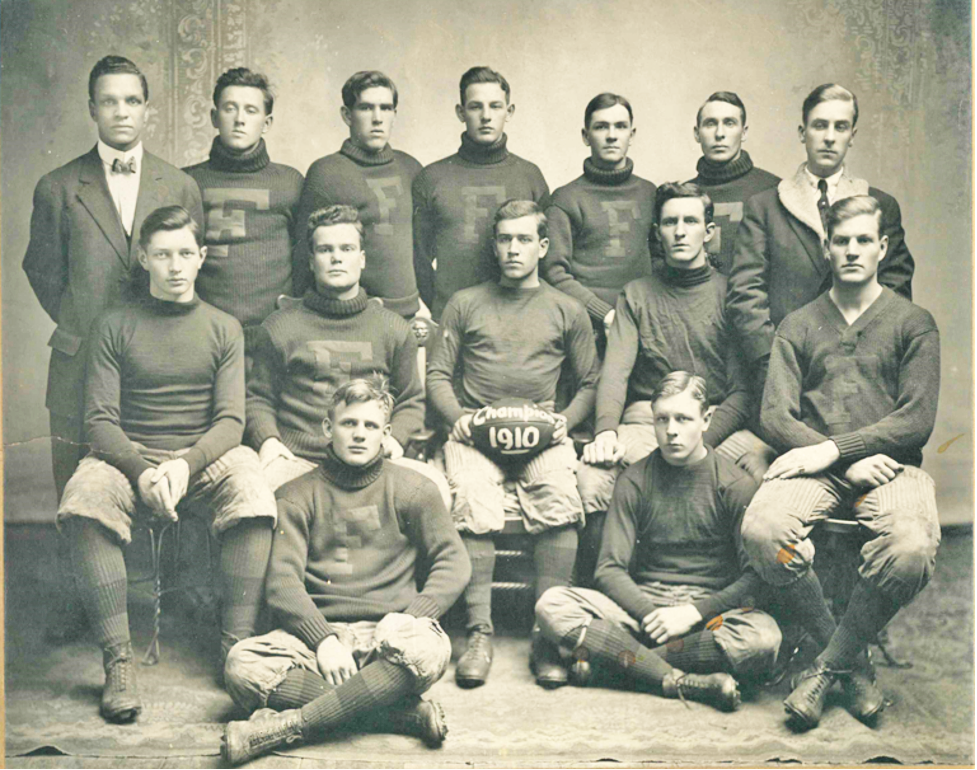Clay County Histories
Markus Krueger | Program Director HCSCC
Did you know that NDSU, Concordia, and Moorhead High had a Black sports coach 100 years ago? Well, it’s likely people back then didn’t know either.
Fenwick Watkins grew up in Burlington, Vermont. He studied civil engineering in college, and he was a standout athlete in football, basketball and baseball. A hometown newspaper bragged about him in 1906: “Fenwick H. Watkins of Burlington, a colored student and a member of the sophomore class, has been elected captain of the University of Vermont football team for next season. This is the first time in the history of athletics at the institution that a colored man has been offered the captaincy of an athletic team. He is said to be one of the most popular men in college.”
After graduating in 1909, Fenwick moved to Fargo. He coached at Fargo College for about a decade, then North Dakota Agricultural College (NDSU), Concordia College, and Moorhead High before retiring from coaching in 1926. He had a career in real estate in Fargo until his death in 1943.
Clay County Archivist Mark Peihl noticed something strange while researching Mr. Watkins. With the exception of confidential information in the 1930 census, all known documents relating to Fenwick after he moved to Fargo list him as white, even documents Watkins produced himself. Watkins’ race is never mentioned in news articles about his teams or land deals, even though this was a time when newspapers routinely mentioned race whenever African Americans made the news (such as in the previous paragraph).
Like many African American professionals whose skin color was light enough to pull it off, Fenwick Watkins appears to have “passed for white.” It is natural for us 21st century folks to feel uncomfortable about someone lying about their race, but put yourself in his shoes. These were the decades when the Ku Klux Klan reemerged throughout America – including here – and used murder, violence, and terrorism against anyone who challenged the horrific racial status quo. Fenwick was a promising young athlete with a gift for coaching, but Black men were not allowed to seek futures in that field outside of segregated African American colleges. So he moved to the middle of nowhere, a 40-year-old prairie town where nobody knew him or his family. He got a good job. And when people asked, he said he was white. In Fargo-Moorhead, Fenwick Watkins was able to coach winning teams, buy and sell properties, and hob-knob with his fellow business professionals. Sadly, it is doubtful he could do this as a Black man.
What should we think about Fenwick Watkins in an era when we rightfully celebrate Black culture? We all know that racial identity in America is complicated, and history is complicated because life is complicated. If revealing your ethnicity would unfairly cause you to lose your career and place you in danger of physical violence, would you tell the truth? Would you keep it secret from your friends? Would the stress keep you up at night?
The person who gathered these sources and noticed the hidden trend is Clay County Archivist Mark Peihl.


